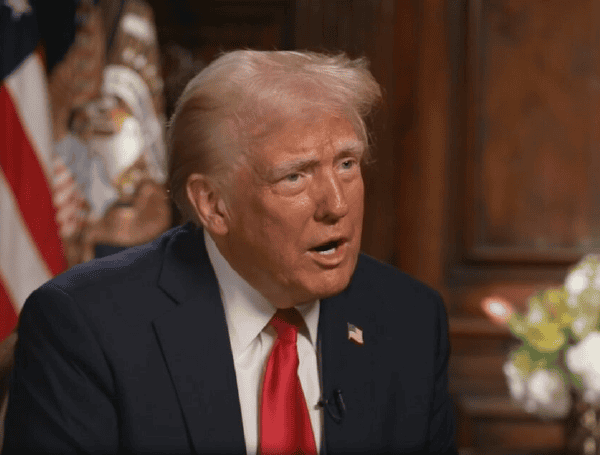President Donald Trump is taking strides to undermine the power of the federal bureaucracy through executive actions.
Amid court battles that could help reshape the role of the executive branch, Trump has signed orders instructing agencies to roll back regulations and attempting to ensure they remain accountable to the people through presidential supervision.
“Trump is using executive power to restore the separation of powers,” Josh Blackman, constitutional law professor at the South Texas College of Law Houston, told the Daily Caller News Foundation. “It is very rare for a President to ask his administration to voluntarily surrender powers that predecessors exercised. I see this as a positive, and important trend.”
READ: Maryland Judge Throws Wrench In Trump Policy Giving Illegal Migrants Nowhere To Hide
Trump signed an executive order Wednesday directing agencies to review unlawful or burdensome regulations, such as those raising serious constitutional difficulties, resting on “unlawful delegations of legislative power” or implicating socially, politically or economically significant matters without “clear statutory authority.”
Trump wrote in the order that it is his administration’s policy “to focus the executive branch’s limited enforcement resources on regulations squarely authorized by constitutional Federal statutes, and to commence the deconstruction of the overbearing and burdensome administrative state.”
“Ending Federal overreach and restoring the constitutional separation of powers is a priority of my Administration,” the order continues.
GianCarlo Canaparo, senior legal fellow at The Heritage Foundation’s Edwin Meese III Center for Legal and Judicial Studies, told the DCNF this order “is one of several that displays not only Trump’s seriousness about reining in the excesses of the regulatory state, but also his sophisticated knowledge of how it works.”
READ: Supreme Court Denies Review Of Abortion Clinic Buffer Zone Case, Justice Thomas Dissents
“For example, this order and another submit more agency actions to the Office of Information and Regulatory Affairs (OIRA), which is the one agency whose job it is to make sure the other agencies are democratically accountable,” he said. “That means more bureaucrats must answer to the only elected official in the executive branch–the president.”
James Valvo, chief policy counsel at Americans for Prosperity Foundation, wrote Thursday that Trump’s order is an “important first step to ridding the regulatory state of unconstitutional, overbroad, and harmful regulations.” Valvo represented the fisherman who helped reverse long-standing deference to agency interpretations of the law in the Loper Bright Enterprises v. Raimondo case at the Supreme Court.
The executive order’s criteria for evaluating regulations mirror three key Supreme Court doctrines: “the nondelegation doctrine, Loper Bright’s end of deference to agency interpretations of law, and the Major Questions Doctrine, respectively,” he explained. Valvo argued Congress should be included in the process by sending rules to the appropriate committees to offer “an opportunity to codify the rules in statute, if Congress believes that is proper.”
In January, Trump signed an order directing agencies to identify at least 10 old regulations to eliminate for every new regulation issued.
Some, however, don’t see Trump’s approach to the law as surrendering power.
Trump’s views on the executive contradict a long tradition that assumed “the president’s policy directives would be vetted by attorneys who with at least a modicum of detachment would seek to ensure legal compliance independent of the president’s will,” Harvard law professor Jack Goldsmith wrote Monday.
“Every modern presidency until Trump 2.0 accepted that the legal issues for an administration would almost always be decided outside the White House, and understood that inevitably some administration policies would be blocked or modified due to a lawyer somewhere in the administration determining that they had legal problems,” he wrote. “Something like this basic commitment is necessary for a presidency to act in accordance with law.”
Ongoing lawsuits challenging other Trump administration actions could also have a lasting impact on how the executive branch functions.
READ: Vivek Ramaswamy Announces Run For Ohio Governor, Vowing To Revive State’s “Excellence”
The Supreme Court decided Friday to hold off on stepping into a controversy surrounding Office of Special Counsel head Hampton Dellinger, who sued after he was fired by Trump. A lower court temporarily reinstated Dellinger to his position until Feb. 26, which the Trump administration argued in an emergency application was an “unprecedented assault on the separation of powers.”
Please make a small donation to the Tampa Free Press to help sustain independent journalism. Your contribution enables us to continue delivering high-quality, local, and national news coverage.
Connect with us: Follow the Tampa Free Press on Facebook and Twitter for breaking news and updates.
Sign up: Subscribe to our free newsletter for a curated selection of top stories delivered straight to your inbox.

First published by the Daily Caller News Foundation.

